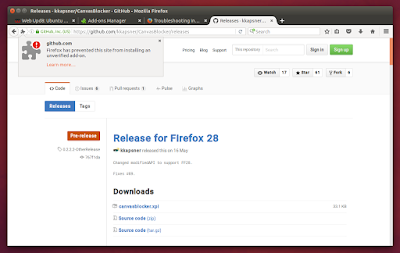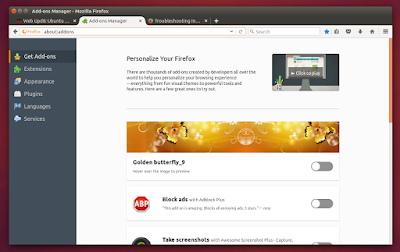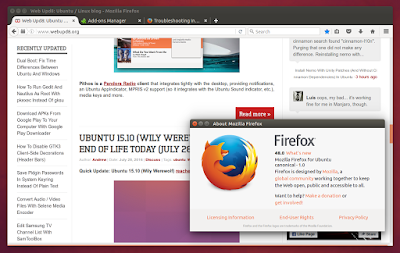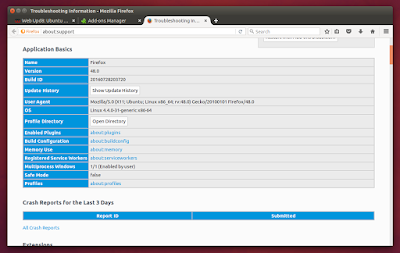Firefox 48 was released today and it includes changes such as enhanced download protection, initial multi-process (Electrolysis, or e10s for short) rollout in Firefox for Desktop, and more.
Until version 48, by default, the stable version of Firefox used a single operating system process for the user interface, as well as the web content.
With the latest Firefox 48, the initial process of enabling Electrolysis (multi-process Firefox) has begun. Electrolysis is used to host, render, and execute web-related content in a separate process, which improves security and performance.
For now, this is only enabled for 1% of eligible Firefox users. If all goes well, e10s will be enabled for more eligible users in the following weeks.
For now, this is only enabled for 1% of eligible Firefox users. If all goes well, e10s will be enabled for more eligible users in the following weeks.
Among those who are not eligible for e10s are Windows XP users, users with screen readers, RTL users, and extension users. The plan is to enable it by default for all eligible users, with Firefox 49.
To see if e10s is enabled in for you, open a new tab in Firefox 48 and type "about:support" (without the quotes), then look for "Multiprocess Windows". If its value is higher than 0, e10s is enabled.
Users can force Firefox to enable e10s, but it's not encouraged, especially when using add-ons.
It's also important to mention that according to the Multiprocess Firefox page, the current e10s implementation gets the Firefox user interface to run in a process and all browser tabs (web content) to run in a different process. Future versions are expected to have more than one content process.
Other changes in Firefox 48 include:
- add-on signing can no longer be disabled. This means you can no longer install add-ons that are not signed by Mozilla, even by forcing "xpinstall.signatures.required" to "false";
- enhanced download protection. Two additional download types were added to the existing Safe Browsing feature: unwanted software (which is software that makes unexpected changes to your computer) and uncommon downloads (which, like the name suggests, it's software that's not commonly downloaded). Also, the Downloads icon now warns if a download has been flagged, and the default action button will be either "open" or "remove", depending on the category. More about this, HERE;
- the address bar results now display "super smart icons" to let you know when a website is already open in a tab or it exists in your bookmarks. This was available in previous versions, but using a different design that made it less noticeable;
- redesigned add-on discovery page;
- the media parser has been redeveloped using the Rust programming language;
- WebRTC improvements, fixes for Heyo, Jabra & Logitech C920 webcam users;
- WebExtensions support is now considered stable;
- Linux: Better Canvas performance with speedy Skia support;
- Windows: Tab (move buttons) and Shift+F10 (pop-up menus) now behave as they should in Firefox customization mode;
- more.
A complete Firefox 48 for desktops changelog can be found HERE. If you're interesting in the latest Firefox 48 for Android, you'll find the changes HERE.
 |
| Unsigned addons can't be installed, even if forced using "xpinstall.signatures.required" set to "false" |
 |
| Redesigned add-on discovery page |
| "Super smart icons" for already bookmarked / opened in a tab websites |
Download Firefox
Ubuntu users: Firefox 48 should be available as an update (via Software Updater) soon.



